第71章 THE MERRY WIDOWS(14)
With regard to (1), several witnesses declared that Lacoste had complained to them of feeling ill after drinking with Meilhan, but none could speak of seeing the two men together.M.Mothe, the friend cited by Meilhan, less positive in his evidence in court than the acte d'accusation made him out to be, could not remember if it was on the 16th of May that he had spent the whole afternoon with Meilhan.It was so much his habit to be with Meilhan during the days of the fair that he had no distinct recollection of any of them.Another witness, having business with Lacoste, declared that on the day in question it was impossible for Meilhan to have been alone with Lacoste during the time that the latter was supposed to have taken the poisoned drink.Lescure, in whose auberge Lacoste was supposed to have had the drink, failed to remember such an incident.The evidence that Meilhan had given Lacoste the drink was all second-hand; that to the contrary was definite.
For the most part the evidence with regard to (2), that Lacoste became very ill immediately on his return from the fair, was hearsay.The servants belonging to the Lacoste household all maintained that the vomiting did not seize the old man until the night of Wednesday-Thursday.Indeed, two witnesses testified that the old man, in spite of his supposed headache, essayed to show them how well he could dance.This was on his return from the fair where he was supposed to have been given a poisoned drink at three o'clock.The evidence regarding the seclusion of Lacoste by his wife was contradictory, but the most direct of it maintained that it was the old man himself, if anyone, who wanted to be left alone.On this point arises the question of the delay in calling the doctor.Witness after witness testified to Lacoste's hatred of the medical faculty and to his preference for dosing himself.He declared his faith in a localvet.
On (3), the bulk of the evidence against Lacoste's having the suggestedafflictions came simply from witnesses who had not heard of them.There was, on the contrary, quite a number of witnesses to declare that Lacoste did suffer from a skin disease, and that he was in the habit of using quack remedies, the stronger the better.It was also testified that Lacoste was in the habit of prescribing his remedies for other people.A witness declared that a woman to whom Lacoste had given medicine for an indisposition had become crippled, and still was crippled.
With regard to (4), the Mayor merely repeated the evidence given in his first statement, but the cure', who also saw the deed assigning an annuity to Meilhan, said that it was not in Mme Lacoste's writing, and that it was signed with the unusual Euphemie.'' This last witness added that Mme Lacoste's reputation was irreproachable, and that her relations with her husband were happy.
Evidence from a business-man in Tarbes showed that Mme Lacoste's handling of her fortune was careful to a degree, her expenditure being well within her income.This witness also proved that the Fourcades' evidence of Euphemie's misbehaviour could have been dictated from spite.Fourcade had been found out in what looked like a swindle over money which he owed to the Lacoste estate.
The court then went more deeply into the medico-legal evidence.It were tedious to follow the course of this long argument.After a lengthy dissertation on the progress of an acute indigestion and the effects of a strangulated hernia M.Devergie said that, as the poison existed in the body, from the symptoms shown in the illness it could be assumed that death had resulted from arsenic.The duration of the illness was in accord with the amount of arsenic found.
M.Flandin agreed with this, but M.Pelouze abstained from expressing an opinion.He, however, rather gave the show away, by saying that if he was a doctor he would take care to forbid any arsenical preparations.
These preparations,'' he said moodily, can introduce a melancholy obscurity into the investigations of criminal justice.''
Some sense was brought into the discussion by Dr Molas, of Auch.
He put forward the then accepted idea of the accumulation of arsenic taken in small doses, and the power of this accumulation, on the least accident, of determining death.
This was rather like chucking a monkey-wrench into the cerebration machinery of the Paris experts.They admitted that the absorption and elimination of arsenic varied with the individual, and generally handed the case over to the defence.M.Devergie was the only one who stuck out, but only partially even then.I persist in believing,'' he said, that M.Lacoste succumbed to poisoning by arsenic; but I use the word `poisoning' only from the point of view of science: arsenic killed him.''
The speech of the Procureur du Roi was another resume of the acte d'accusation, with consideration of that part of the evidence which suited him best.
This was followed by the speech of Maitre Canteloup in defence of Meilhan.The speech was a good effort which demonstrated that, whatever rumour might accuse the schoolmaster of, there were plenty of people of standing who had found him upright and free from stain through a long life.It reproached the accusation with jugglery over dates and so forth in support of its case, and confidently predicted the acquittal of Meilhan.